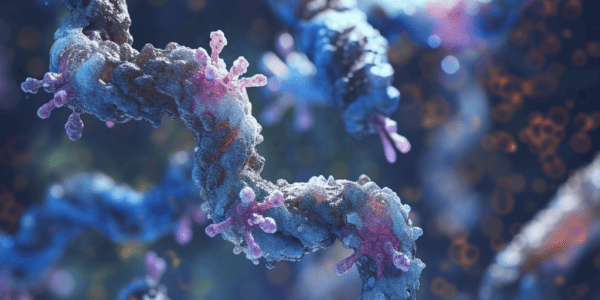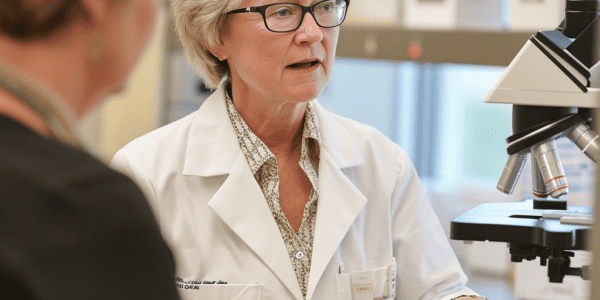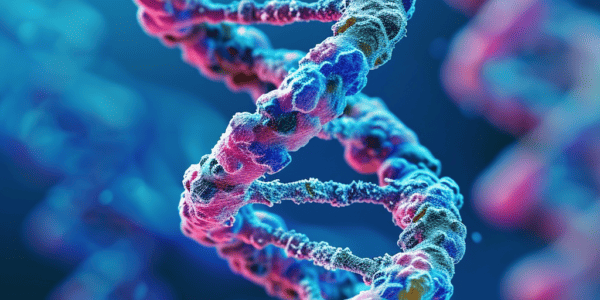Genetically Edited Pigs Immune to Deadly Disease Spark Ethical Concerns
US farmers are on the verge of introducing genetically edited pigs immune to porcine reproductive and respiratory syndrome (PRRS), potentially saving millions for the industry. Despite concerns from animal rights groups, the use of CRISPR technology has allowed for the creation of PRRS-resistant pigs, with regulatory approval anticipated as early as next year. Critics argue that improving living conditions for livestock should be prioritized over genetic modifications.
Discovery of Male Fertility Gene
Scientists have discovered a male fertility gene, SPOCD1, that works in partnership with the C19orf84 gene to protect early-stage precursors to sperm cells from damage. Understanding how these genes work together could explain the basis of severe cases of male infertility. The findings, published in Molecular Cell, shed light on the genetic causes of conditions like cryptozoospermia and azoospermia, which affect around one percent of men.
Study in Nature Reveals Genetic Determinants of Micronucleus Formation and Implications for Human Disease
A recent study published in Nature has uncovered crucial insights into genomic instability and its implications for various diseases. The research delved into the mechanisms underlying the sequestration of DNA in aberrant extranuclear structures known as micronuclei (MN), associated with genomic instability, aging, and diseases linked to DNA damage and mitotic chromosomal imbalances. The study identified 145 genes that play a significant role in either increasing or decreasing MN formation, many of which have orthologues associated with human diseases, highlighting the potential clinical relevance of the findings. The identification of Dscc1 as a gene whose loss significantly increases MN formation and the validation of the DSCC1-associated MN instability phenotype in human cells offer insights into potential therapeutic avenues for addressing genomic instability.
Groundbreaking Discovery in Understanding Neurodegenerative Disease Origins through Ancient Human DNA Analysis
Scientists have made a groundbreaking discovery in understanding the origins of neurodegenerative diseases through the analysis of ancient human DNA. The research, led by a team of international experts, has resulted in the establishment of the world’s largest gene bank…
Study Reveals Impact of Genotypes on Icelandic Lifespan
A new study has revealed that a significant percentage of Icelanders carry genotypes linked to serious diseases, impacting their lifespan. The study, which analyzed 58,000 whole-genome sequenced Icelanders, found that actionable genotypes, particularly those predisposing individuals to cancer and cardiovascular…
Breakthrough in Understanding Bacterial Genome Regulation through Transcription-Replication Interactions
Researchers have made a significant breakthrough in understanding bacterial genome regulation through transcription-replication interactions. The study, published in Nature, sheds light on the dynamics of gene expression at the genome scale, providing a novel classification of regulatory modes based on…
The Evolving Landscape of Genetic Testing in Oncology
In a recent interview with Targeted Oncology, Dr. Louise Morrell discussed the evolving landscape of genetic testing in oncology and the latest advancements in the field. The use of genetic testing in oncology has seen significant expansion in recent years,…
Groundbreaking Discovery Reveals Critical Role of DNA Loops in Gene Repression
USC Stem Cell scientists have made a groundbreaking discovery that could reshape our understanding of how DNA functions and influences human health. The study, led by Oliver Bell, revealed the critical role that DNA loops play in gene repression. Published…
Breakthrough in Understanding Genetic Regulatory Effects in Pigs
Researchers have made significant strides in understanding genetic regulatory effects across pig tissues, shedding light on the potential for fundamental biological discovery and exploitation in animal breeding and human biomedicine. The Farm Animal Genotype-Tissue Expression (FarmGTEx) project has been established…
Rice University Scientists Develop Noninvasive Method to Monitor Gene Expression in the Brain
This week, Rice University scientists have made a groundbreaking development in the study of gene expression in the brain. Their research, published in Nature Biotechnology, introduces a noninvasive method to monitor gene expression dynamics in the brain through a simple…










